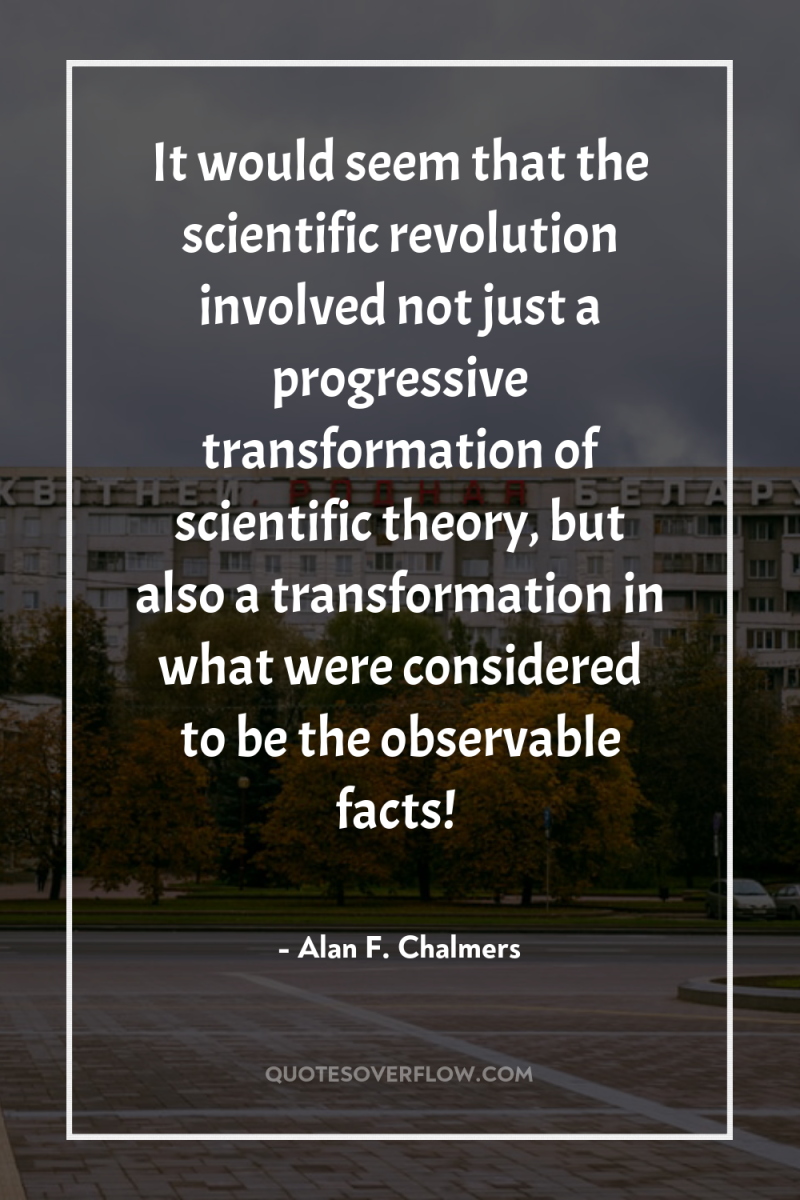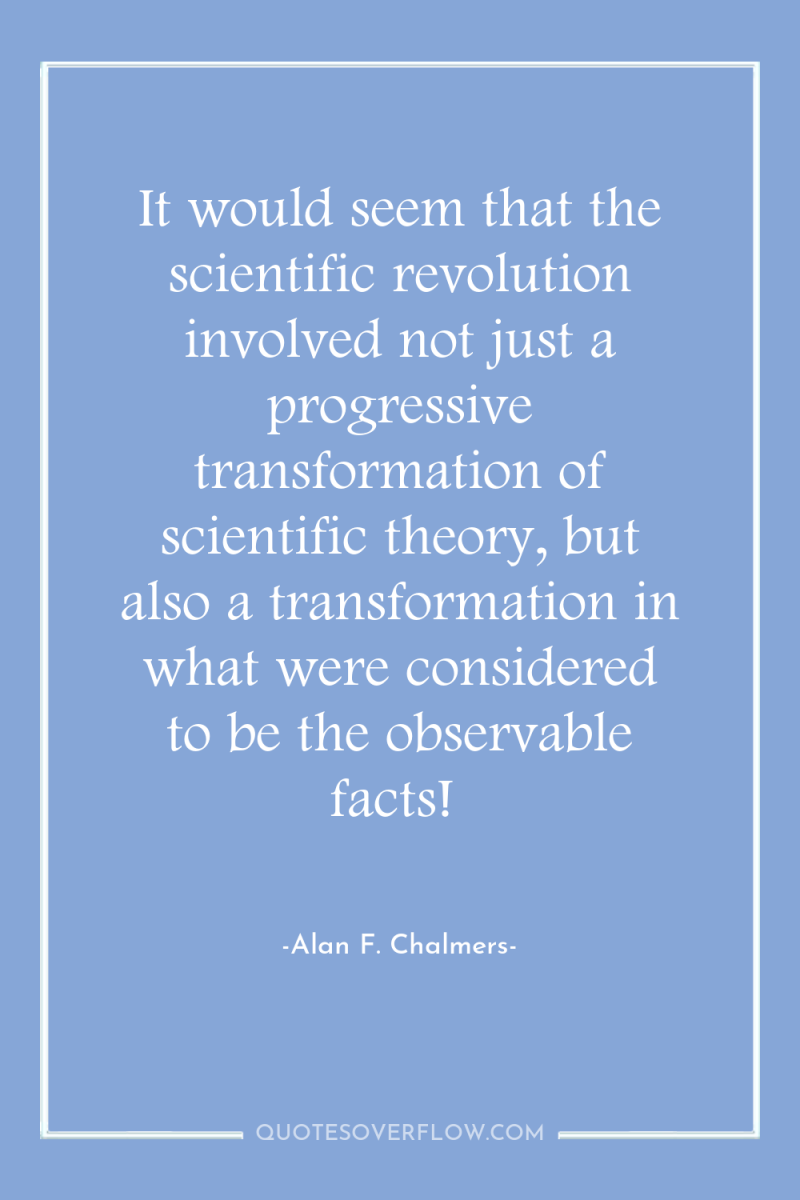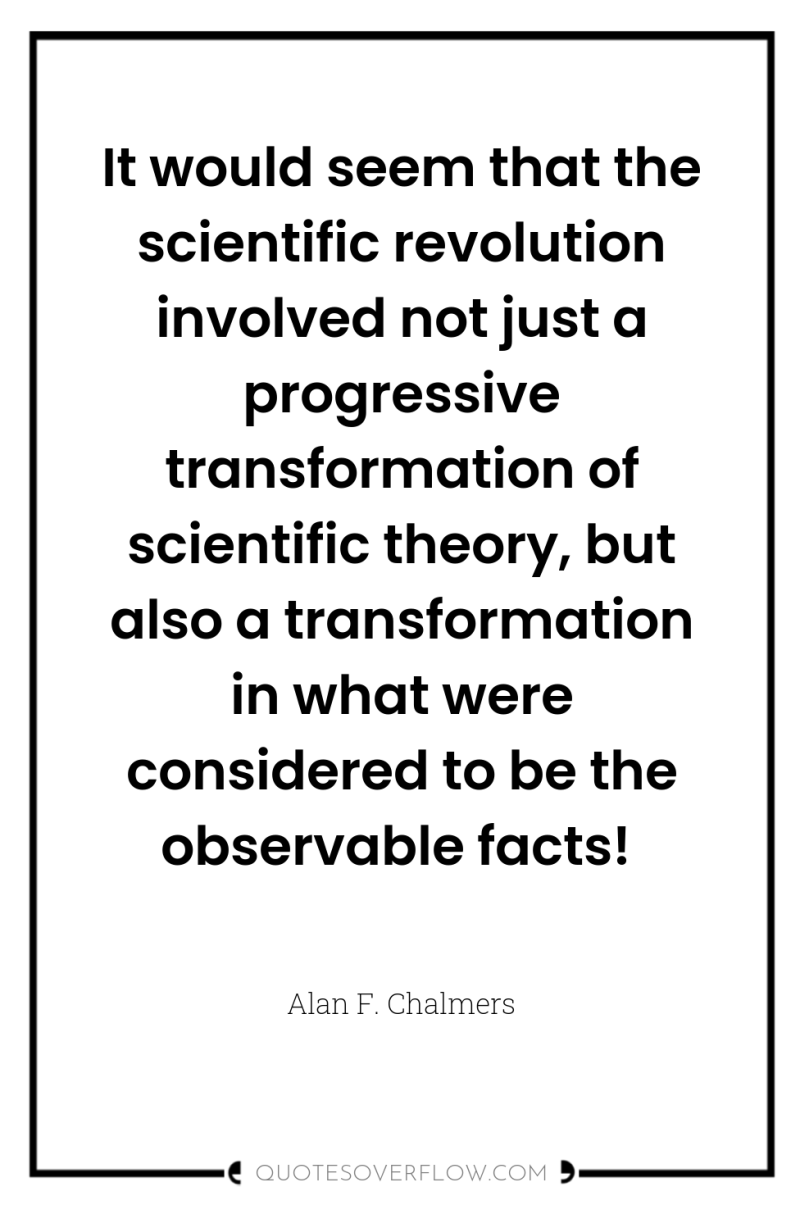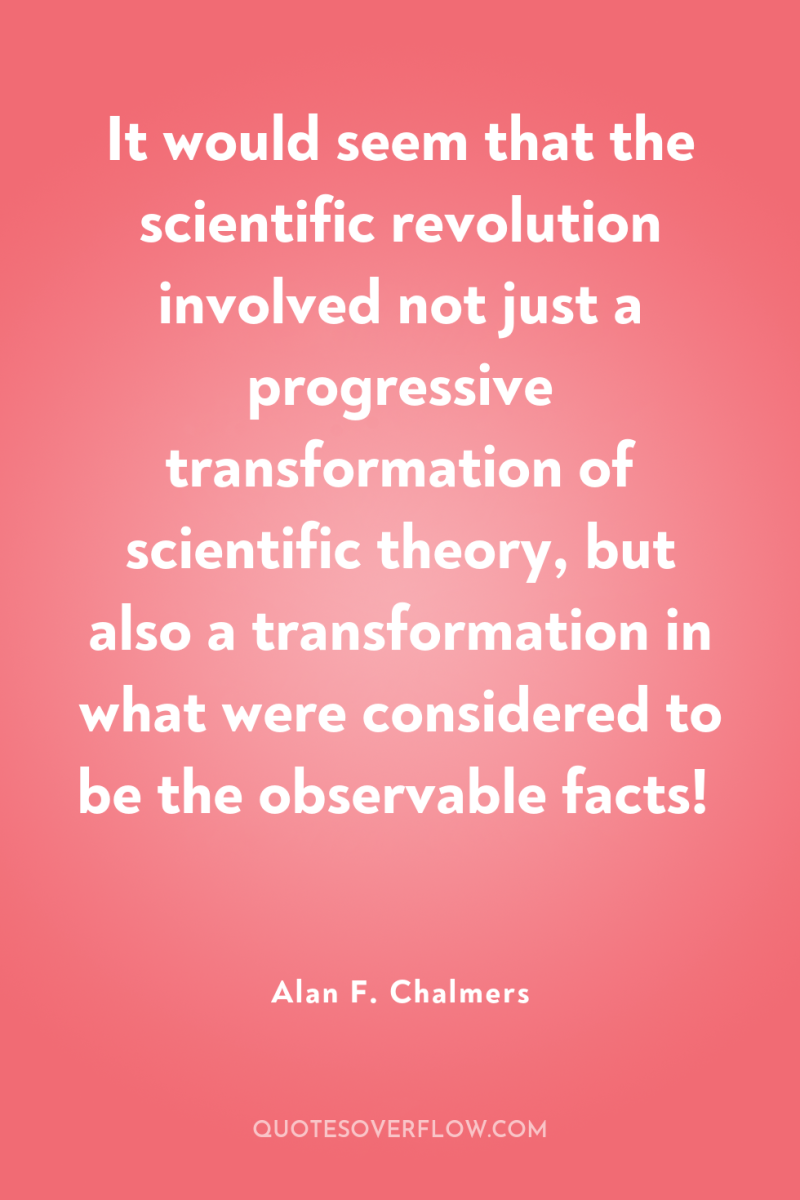Alan F. ChalmersIt would seem that the scientific revolution involved not just a progressive transformation of scientific theory, but also a transformation in what were considered to be the observable facts!




About This Quote
The scientific revolution involved not just a progressive transformation of scientific theory, but also a transformation in what were considered to be the observable facts! In other words, the new ideas that were being put forth by scientists were no longer considered to be "facts" that could be observed, measured, and described. This is a common idea in science fiction stories where the people of the future have lost the ability to observe and measure things. How can you know what a person or thing is doing when you can't see them? Most likely the concept of a "fact" in science fiction has been influenced by what was known in real life. The idea that people in the future would lose their ability to observe and measure things comes from the fact that human beings have always been limited by their senses. In other words, we can't see into an object, hear into something, taste into something, or feel into any object.
We can only observe it. The ability to observe and measure things has always been limited by human senses. Some people could hear farther than others; some could smell stronger odors; some could taste more bitter tastes; and some could feel more pain than others. All of these differences are based on the standard of measurement used by different people (sizes, sounds, smells). As an example, modern technology has changed how far we could hear.
Originally this was based on how far one could hear with his or her ear lobes. Now it is based on how far one can hear with an electronic device like an electronic hearing aid. This change in measurement system reflects changes that have occurred in the way human beings perceive sound waves and how they use their ears to listen to sound waves. Another way this change has occurred is due to improvements in microscopes, telescopes, and other ways of viewing objects at great distances.
These changes have allowed us to see things further than ever before--even things invisible to our naked eye! However, all of these improvements are also limited by our senses or instruments for seeing and measuring things based on our senses--our eyesight, hearing aids, microscopes , telescopes , etc...
Some Similar Quotes
- The problem, often not discovered until late in life, is that when you look for things in life like love, meaning, motivation, it implies they are sitting behind a tree or under a rock. The most successful people in life recognize, that in life they...
- And sometimes I believe your relentless analysis of June leaves something out, which is your feeling for her beyond knowledge, or in spite of knowledge. I often see how you sob over what you destroy, how you want to stop and just worship; and you...
- The saddest aspect of life right now is that science gathers knowledge faster than society gathers wisdom.
- I'm sure the universe is full of intelligent life. It's just been too intelligent to come here.
- A man who dares to waste one hour of time has not discovered the value of life.
More Quotes By Alan F. Chalmers
- It would seem that the scientific revolution involved not just a progressive transformation of scientific theory, but also a transformation in what were considered to be the observable facts!
- Imagine a skilled botanist accompanied by someone like myself who is largely ignorant of botany taking part in a field trip into the Australian bush, with the objective of collecting observable facts about the native flora. It is undoubtedly the case that the botanist will...